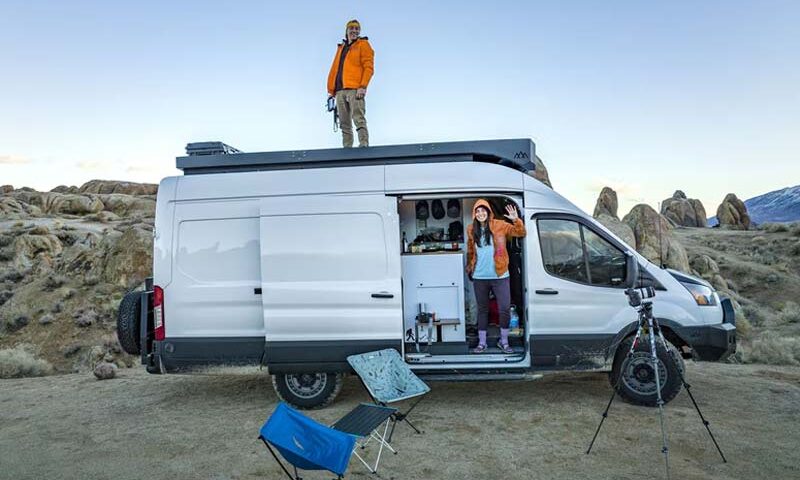First Time Using an RV? Here’s What You Need to Know

If you’re a novice RVer, you are probably feeling a little overwhelmed by the quantity of information available on the subject. These RV recommendations for first-timers are intended to provide you with enough knowledge to get you out on the road as fast and safely as possible. Even seasoned RVers may pick up a few pointers from this blog.
So here is what you need to know:
Purchasing or Shopping for an RV
It’s difficult to say what kind of RV is most appropriate for you since the answer is different for each person. There is no such, and you are unlikely to discover one on your first attempt.
The only way to tell whether you are beginning for the first time is to try it out yourself. The most essential thing was that you book an RV that would work best for you and your family.
Renting an RV
If you aren’t ready to make the financial commitment to owning an RV yet, renting an RV will allow you to take advantage of the benefits of RV travel. There are a variety of alternatives available, ranging from small local businesses that specialize in Class B vehicles to large nationwide rental companies.
These huge RV rental companies effectively serve as a marketplace for those who want to rent recreational vehicles. Several private individuals post their RVs for rent on the site, and you may search for the brand and model of your choosing depending on what is accessible in your specific region.
Whatever kind of RV rental you’re looking for, you’ll almost certainly be able to find it; it’s simply a question of pricing and availability.
Types of RV
If you’re a first-time RVer, the many types of recreational vehicles (RVs) may seem unfamiliar to you. In what sense does the term “Class B” refer, and why is it smaller than the “Class A” and “Class C?”
So, here’s a short rundown of the many sorts of recreational vehicles available:
Motorized RVs
Trucks classified as Class A are massive, flat-nosed vehicles that appear like buses, with large windshields. Models ranging from 25 feet to 45 feet in length are available in both gas and diesel configurations.
- Class C: It is a classic motorhome with the cab-over bunk and made on a truck chassis.
- Super C: They are still constructed on a truck chassis, but they have a more industrial appearance rather than that of an RV.
- Class B: RVs in the Class B category include camper vans. Because these RVs are designed on van chassis that are different from other powered RVs, they are smaller and shorter than other motorized RVs.
- Truck Camper: A camper shell that is placed in the bed of a pickup truck or other large vehicle.
Towable RVs
- Fifth wheel: The term “fifth wheel” comes from the fact that the front pin of the trailer lies in the bed of the truck, and the truck axle works as a type of “fifth wheel” to a double axle recreational vehicle.
- Travel trailer: Also known as “bumper pulls,” travel trailers are hitched to a typical ball hitch, allowing the trailer’s weight to be distributed completely behind the truck instead of on the back axle of the vehicle.
Driving a Recreational Vehicle (RV)
Driving an RV for the first time might be a frightening experience. Locate a large, vacant parking lot where you can practice driving and get some experience done. Test your ability to make tight bends to see how much space you need.
RV Equipment
Even if you don’t purchase anything else, be sure you have the following items on hand:
- Water hose with RV Water Filter for receiving freshwater from the RV filling station.
- Electric adaptors- It’s a good idea to have a sufficient number of adaptors so that you can plug them into any outlet.
- Surge protector / (EMS) to safeguard the electrical system of your RV
- Leveling blocks
- Wheel chocks
- RV kitchen cooking essentials
Even though there are a significant number of RVers on the road, there are much more part-time RVers who utilize their camper for vacation trips or longer road trips. When these recreational vehicles aren’t used for vacation, they’re most likely languishing in a storage facility, waiting for their next excursion. As you have undoubtedly discovered, there’s a lot to be learned about RVing, but don’t let that deter you from getting started.
But one thing is certain: it’s all entirely worth it in the long run. You’ll learn new talents that you didn’t know you possessed, and you’ll get to see some breathtaking scenery in the process.



